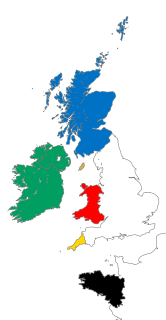 W
WIn Celtic cultures, a bard was a professional story teller, verse-maker, music composer, oral historian and genealogist, employed by a patron to commemorate one or more of the patron's ancestors and to praise the patron's own activities.
 W
WBraccae is the Latin term for "trousers", and in this context is today used to refer to a style of trousers made from wool. According to the Romans, this style of clothing originated from the Gauls.
 W
WThe Careto tradition is a pre-historical Celtic religious ritual still practised in some regions of Portugal, namely in the villages of Podence, Vila Boa de Ousilhão, Varge, among others. It currently takes place during Winter and, in certain regions, Carnival and is one of the oldest traditions being practiced in Portugal still today. Although there are "rituals" practiced at the village of Lazarim, these are not of Celtic origin as their origin is only registered as starting on the second half of the last century.
 W
WCeltic Family Magazine was a Los Angeles, California-based print and electronic publication, serving Celtic communities and their descendants around the world. Celtic Family Magazine published special features and articles on art, history, culture, entertainment, and lifestyle. Celtic Family Magazine was produced by A Raven Above Press and was distributed throughout North America and select areas of the United Kingdom.
 W
WIn the strictly academic context of Celtic studies, the term Celtic literature is used by Celticists to denote any number of bodies of literature written in a Celtic language, encompassing the Irish, Welsh, Cornish, Manx, Scottish Gaelic and Breton languages in either their modern or earlier forms.
 W
WChariot burials are tombs in which the deceased was buried together with their chariot, usually including their horses and other possessions. An instance of a person being buried with their horse is called horse burial.
 W
WCeltic coinage was minted by the Celts from the late 4th century BC to the mid 1st century AD. Celtic coins were influenced by trade with and the supply of mercenaries to the Greeks, and initially copied Greek designs, especially Macedonian coins from the time of Philip II of Macedon and his son, Alexander the Great. Thus Greek motifs and even letters can be found on various Celtic coins, especially those of southern France.
 W
WA coracle is a small, rounded, lightweight boat of the sort traditionally used in Wales, and also in parts of the West Country and in Ireland, particularly the River Boyne, and in Scotland, particularly the River Spey. The word is also used of similar boats found in India, Vietnam, Iraq and Tibet. The word "coracle" is an English spelling of the original Welsh cwrwgl, cognate with Irish and Scottish Gaelic currach, and is recorded in English text as early as the sixteenth century. Other historical English spellings include corougle, corracle, curricle and coricle.
 W
WIn addition to English, literature has been written in a wide variety of other languages in Britain, that is the United Kingdom, the Isle of Man and the Channel Islands. This includes literature in Scottish Gaelic, Welsh, Latin, Cornish, Anglo-Norman, Guernésiais, Jèrriais, Manx, and Irish. Literature in Anglo-Saxon is treated as English literature and literature in Scots as Scottish literature.